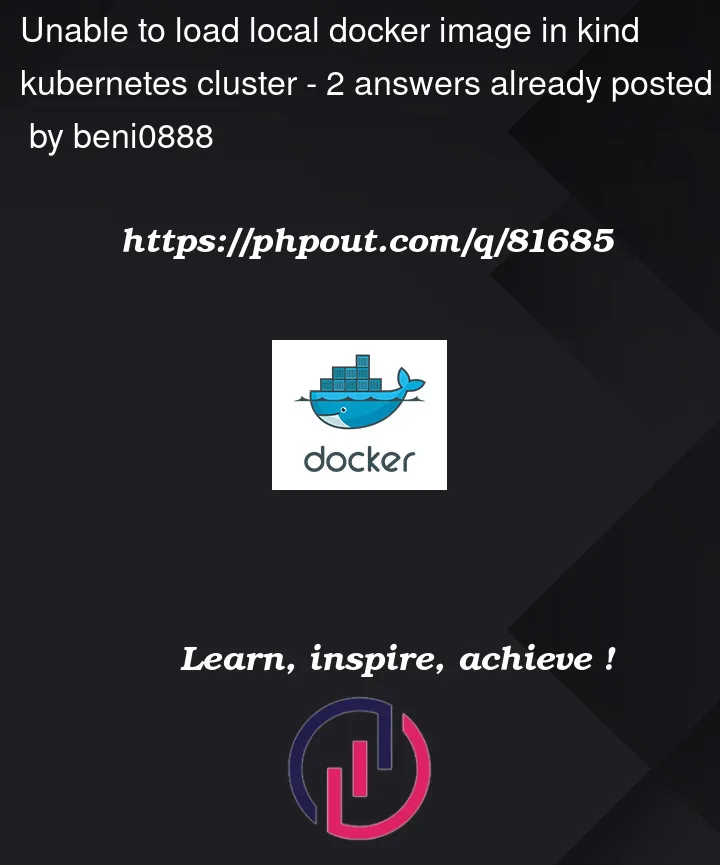I have an Apple Macbook Pro with an M1 chip, where I have a local kubernetes cluster running through Kind. The thing is I don’t understand how Kind deals with docker images from different platforms/architectures. The thing is I have an application installed via Helm that points to some docker images with linux/amd64 architecture, and when I install it through helm (helm install -n [namespace] [repo] [app]), it works like a charm (I can actually look at the downloaded images and see that their architecture is amd64). However, when I download the same image to my local docker registry with docker pull [my-image], and then try to load it to the kind cluster with kind load docker-image [my-image] [my-cluster], it doesn’t work and I get the following error:
Image: "[my-image]" with ID "sha256:d3a8..." not yet present on node "[my-cluster]-control-plane", loading...
ERROR: failed to load image: command "docker exec --privileged -i [my-cluster]-control-plane ctr --namespace=k8s.io images import --digests --snapshotter=overlayfs -" failed with error: exit status 1
Command Output: ctr: image might be filtered out
And after googling the error a little bit, I could see that it is due to the mismatch of architectures between the image and the kind cluster.
Could someone explain to me the reason for these different behaviors?




2
Answers
After asking in the Kind Slack channel in the Kubernetes workspace I could finally find the answer to my question: whole thread here.
TL,DR;
Kindwas unable to load the images with architectures that don't match the host architecture because it lacked a required--all-platformsargument in the call to thectrtool used bykind load docker-imageto load the docker images into the cluster. A PR to fix the issue was filed and it will be fixed in future releases ofKind.This can also happen when you have to run kind as a super user
Ensure to:
docker images)sudoif requiredsudo kind load docker-image test-img:1.0 --name test-cluster